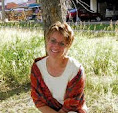Gotta love serendipity
Just this past weekend I
started and finished John Green’s The Fault In Our Stars and loved it. This is not a typical genre for me but it came
highly recommended by Janet (colleague, guest blogger, and kindred spirit-book lover) and timed
nicely with an upcoming discussion with John Green over on GoodReads on January
23rd.
The genre – ‘sick-lit’. This is a term I had not heard of before
Monday when I read this article from Mail Online. Briefly, this is YA fiction that
focuses on teens that are grievously ill, dying, depressed, or suicidal. And the book The Fault In Our Stars
certainly falls smack-dab into this category.
The main character is dying of cancer but while attending a support
group meets and falls in love with another cancer survivor. Yes, I cried but I also laughed too. John Green does teen dialogue brilliantly
with lots of clever repartee. This was a
really, really, good book.
But then Wednesday, on CBC’s
radio program, The Current there was
a segment dealing with this exact topic.
One member of the panel, Amanda Craig, sees such books as problematic,
maudlin, and potentially, could act as a trigger for kids to hurt or kill themselves.
 And then, while prepping for an unrelated workshop that I'm doing later this week, I came across the Center for the Book in the Library of Congress, Letters About Literature. This is a contest where students write
letters to an author about one of their books and the impact it has had on
them. Scroll down to the fifth letter
under Level 3. This letter is addressed to Jay
Asher, author of Thirteen Reasons Why (one of the books mentioned on The Current) and shares that the letter-writer credits this book as one of the reasons why she didn't commit suicide.
And then, while prepping for an unrelated workshop that I'm doing later this week, I came across the Center for the Book in the Library of Congress, Letters About Literature. This is a contest where students write
letters to an author about one of their books and the impact it has had on
them. Scroll down to the fifth letter
under Level 3. This letter is addressed to Jay
Asher, author of Thirteen Reasons Why (one of the books mentioned on The Current) and shares that the letter-writer credits this book as one of the reasons why she didn't commit suicide.
I haven’t read all the books
mentioned in Wednesday's radio program. But I do remember reading my
fair share of similar fair as a teen back in the 70's and early 80's. Teens like ‘dark’ stuff. Intense, emotional subjects are where it’s at
for many of them. For some it, it may be
problematic. For others not. This is
something that is individually defined.
Parents might be able to help that is, in terms of being open to
discussion but I can’t see parents effectively controlling teens from
reading 'toxic' books whatever the genre.
This kind of discussion has been around a long time. And, I think for some of us, the closest to consensus we'll get, is to agree to disagree.

.jpg)












0 comments:
Post a Comment